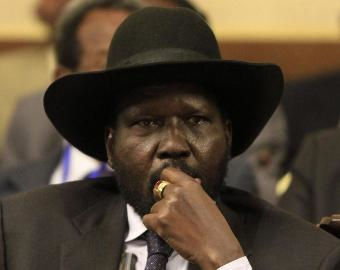South Sudan president holds back creation of new states
November 3, 2016 (JUBA) – South Sudan President Salva Kiir has halted a decision to create more new states in the country, underscoring the level of limited involvement of the community in the decision making processes.

Presidential sources told Sudan Tribune in a series of interviews on Thursday that the president was initially intending to make Raja a separate state from the two counties of Aweil West and North and an additional state out of Eastern Nile. However, this idea has been met with difficulties, according to several of the highly placed official at the presidency.
Many community members have expressed different viewpoints against the proposal.
In Lol, according to a committee member, Raja communities are advocating for a return to Wau or remain with the two counties in Aweil on the condition that the headquarters of the new state is removed in the area.
They prefer the administrative headquarters of the state to be away from them. The reason is to reduce exodus movement of ethnic Dinka into the area in pursuit of better living conditions and employment as a means to extending their influence to the area as well as source of grabbing land.
In Eastern Nile, members of the Padang community have threatened to take up arms if the state is again divided, saying they were comfortable with the current status and do not need a new state to be carved out of the new state.
To overcome the existing challenges President Kiir thinks it would be wise to give amply time to the people to consult among themselves so that they come up with a solution in which they will play a role in the implementation, the source told Sudan Tribune on Thursday.
“The outcome should be a people led decision. It should not be seen as if it was a decision of the President,” he stressed.
However, Presidential Advisor on Decentralization and Intergovernmental Linkage, Tor Deng Mawien watered down the significance of the delay, adding that a decision would be taken soon.
“Consultations are still continuing with the communities before a decision could be made,” he told Sudan Tribune on Thursday.
(ST)
